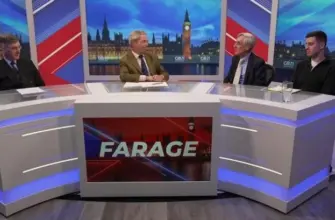The UK Government has announced a substantial £20 billion financial support package aimed at bolstering exports amidst growing concerns over global economic stability. This initiative comes as the international market reels from recently implemented US tariffs initiated by the Trump administration, creating an environment of heightened uncertainty.
The core of this new strategy involves expanding the resources available through UK Export Finance (UKEF). Up to £10 billion within this package is specifically designed to assist businesses experiencing immediate difficulties as a result of these trade changes.
Chancellor Rachel Reeves emphasized the shifting global landscape, stating: “The world is changing, which is why it’s crucial we support our leading businesses and equip them to confront the challenges ahead.” She anticipates that thousands of firms across the nation will benefit from this intervention.
These measures are being implemented in response to anxieties surrounding a potential global economic slowdown. The US tariffs – impacting a broad spectrum of goods – have already caused market volatility, contributing to declining stock values and raising alarms about a possible recession.
While the Trump administration has partially adjusted its approach, reducing import charges to a general 10% rate and exempting certain electronics previously subject to significantly higher tariffs (like smartphones and laptops), concerns remain. One advisor indicated that this 10% tariff now represents a “baseline” for future trade policy.
Despite these adjustments, UK exporters are still vulnerable. Chancellor Reeves acknowledged the severity of the situation in a recent commentary, describing the impact of the tariffs as having a “profound impact” on both the UK and the global economy.
She further stated: “The Labour party is an internationalist party. We understand the benefits of free and fair trade and collaboration. Now is not the time to turn our backs on the world but to face forward.”
Key components of this support package include:
- Increased flexibility for UKEF to provide partial loan guarantees, facilitating access to credit for businesses.
- An additional £500 million expansion to the British Business Bank’s loan guarantee scheme, specifically targeting small enterprises.
Chancellor Reeves is expected to continue discussions with US officials during her attendance at the International Monetary Fund’s spring meetings in Washington later this month, aiming to secure a formal exemption for UK exporters from these new tariffs.
She asserted: “I am resolved to get the best deal possible for the UK.”
However, the Government’s response has faced criticism. Conservative shadow business secretary Andrew Griffith accused Labour of inaction and questioned the removal of the previous chief negotiator, asserting that these actions have contributed to increased costs, disrupted supply chains, and overall uncertainty.
Griffith highlighted prior Conservative efforts to cultivate relationships with US states, referencing eight state-level agreements and progress on a broader trade deal.
Chancellor Reeves countered this criticism, maintaining that the new support will safeguard jobs, stabilize trade flows, and foster long-term economic growth. “We are going further and faster to boost growth, but we cannot do it alone,” she affirmed. “Only by working with businesses will we achieve our Plan for Change and put more money into people’s pockets.”



